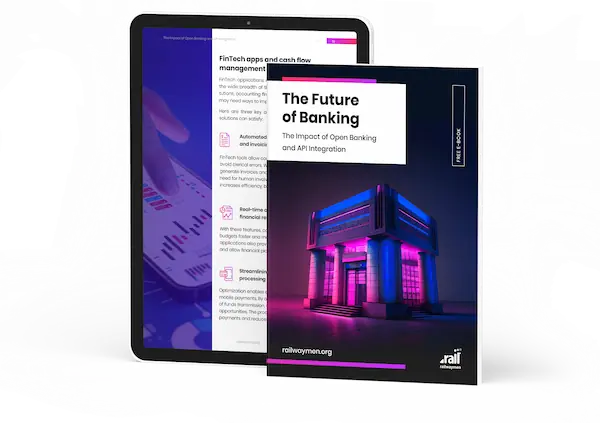The demand for big data in the FinTech industry is noticeably growing. Big Data has pioneered many innovations in the financial technology sector, including open banking, a system that provides third parties with access to financial data via application programming interfaces (APIs).
Table of Contents:
1. What is FinTech and Big Data?
2. Why is Big Data so important in FinTech?
3. Benefits of Big Data in the FinTech Industry.
3.2. Improved Customer Service.
3.3. Improved Risk Assessment.
3.5. Robotic Process Automation, Chatbots and Bots.
4. Challenges of Big Data in FinTech.
4.3. Inadequate IT Infrastructure.

What is FinTech and Big Data?
FinTech is a popular topic in the financial world, where big data is used. It refers to technological advancements in the financial sector and may include technology applications in retail banking, financial literacy, online banking and trading, peer-to-peer lending, and other areas.
Big Data is a collective term that describes ever-growing, large, diverse, structured and unstructured, and hard-to-manage volumes of data gathered from various sources such as social, machine and transactional one.
Structured data is information that is stored internally within a company to obtain the most important, key information that helps the organization in making decisions.
Unstructured data, on the other hand, is accumulating from a variety of sources in ever-increasing numbers, providing analytics potential.

Why is Big Data so important in FinTech?
Due to the complexity of its services, the FinTech sector makes extensive use of Big Data. The widespread use of modern technology in daily operations, as well as the need for a high level of security and risk analysis, rely on large amounts of data.
Big Data can help FinTech companies organize massive amounts of data and translate it into actionable insights. These Big Data insights can then be used by FinTech companies to drive market forecasts, design future strategies, and even personalize and fulfill customer expectations, among other benefits.
FinTech startups, online banks, are harnessing the true power of Big Data. They use it to make sound business decisions that set them apart from competitors and well-established large financial institutions.
Nowadays, newly emerging FinTech companies can distinguish themselves from traditional financial institutions by using large sets of data to generate sophisticated risk assessments. With the speed of real-time data, breakthrough FinTech firms and challenger banks can respond to a changing market.

Benefits of Big Data in the FinTech Industry
#Customer Orientation
The use of Big Data by FinTech companies aims to develop accurate and more detailed user profiles and precise customer segmentation strategies. Thanks to the analysis of this data, they are able to adapt services to their individual requirements and needs.
#Improved Customer Service
FintTch institutions use Big Data to help establish a digital footprint of a customer's financial behavior in order to suggest appropriate services or products based on customers' specific buying and spending habits.

#Improved Risk Assessment
Because of improved risk assessments, FinTech businesses can operate with greater financial certainty, manage cash flow, and offer consumers competitive rates.
Predictive data analytics is changing the way traditional banks think about risk.

#Improved Security
Fraud is a common problem these days, especially in the digital banking sector. Using Big Data, FinTechs are able to develop more accurate fraud detection systems by searching and analyzing any suspicious transactions.
FinTech businesses are also using available smart devices and mobile technology (for example mobile apps) to inform consumers about issues related to the safety of their money, to give them all needed information about potential security threats.

#Robotic Process Automation, Chatbots and Bots
Robotic process automation seeks to improve the user experience by enabling bots to perform repetitive (and labor-intensive) tasks without requiring human interaction. It reduces the number of errors and enables team members to handle more complex problems regarding customer data and provide better customer service.
In turn, chatbots use Artificial Intelligence to enable contact with a customer or potential customer 24 hours a day, 7 days a week. The main purpose of chatbots is to help consumers in many ways, including handling transactions or providing relevant information.
Challenges of Big Data in FinTech
#Poor Data Quality
Many FinTech firms, mostly new emerging start-ups, underestimate the importance of data quality. As a result, they run the risk of making mistakes like incorrect customer profiles, and inaccurate credit risk assessments.
Inadequate data quality can jeopardize regulatory compliance, data security, and corporate image.

#Regulatory Pressure
The financial sector is highly regulated. FinTech businesses must meet all the requirements set by these and other regulatory laws to successfully integrate Big Data into their operations.
However, for Big Data to realize its true potential in the FinTech sector, it is necessary to change the regulatory framework, as some existing regulations prevent the financial technology sector from adopting more complex solutions that have greater potential to meet the needs of users.

#Inadequate IT Infrastructure
The adoption of Big Data in the FinTech sector is still at a fairly early stage. The size and diversity of its volume, combined with the importance of maintaining good data quality, is a major challenge for the entire FinTech sector. This is mainly due to the lack of IT infrastructure in the industry, and therefore it is difficult to properly use and analyze Big Data without appropriate tools, techniques and integration of Artificial Intelligence and Machine Learning models with existing organizational systems.
Summary
The financial technology industry is growing rapidly. It has changed the customer experience and expectations of all financial institutions.
In this sector, innovations such as Artificial Intelligence, Machine Learning and Big Data are driving more personalized and tailored customer experiences.

Explore FinTech solutions developed by Railwaymen
Check out the Case Studies section of the Railwaymen's website to learn more about FinTech solutions in practice. There are numerous stories about the development of our applications and the progression of each project from the first meeting with the client.
This is a solid dose of information that will help you open up more to the world of finance and understand its dependencies.
Do you want to know what factors are shaping the banking environment?
We have created an e-book "The Future of Banking: The Impact of Open Banking and API Integration" that provides a detailed analysis of the benefits and challenges of these adjustments. Whether you are a bank chairman or an entrepreneur, you will gain valuable information that will help you take your business to the next level with our assistance.
DOWNLOAD NOW






